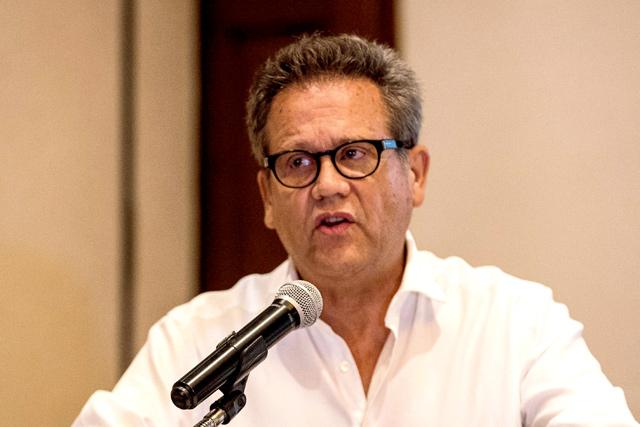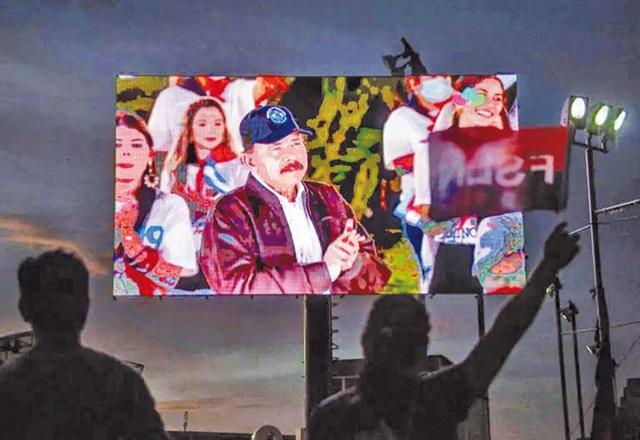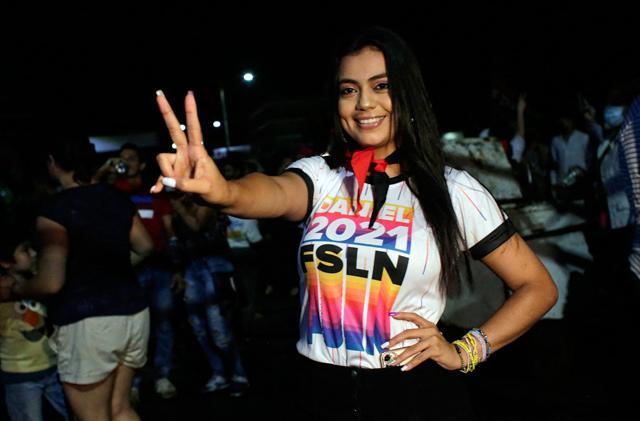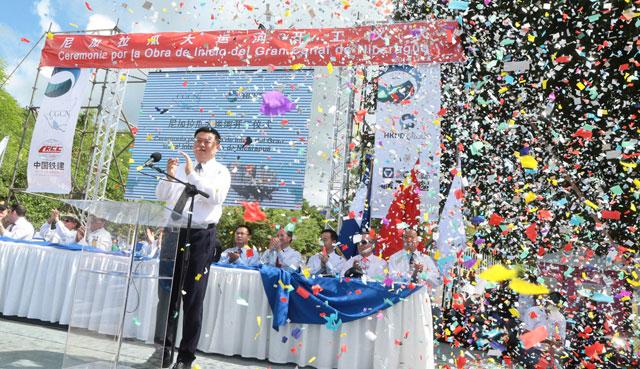You are here
Int’l anger grows as Nicaragua's Ortega rounds up rivals
By AFP - Jun 23,2021 - Last updated at Jun 23,2021

In this file photo taken on April 26, Nicaraguan diplomat and Professor Arturo Cruz speaks during a political event in Managua (AFP photo)
MANAGUA — With five opposition presidential challengers now in detention, Nicaragua's long-serving leader Daniel Ortega is clearing domestic obstacles to a fourth successive term but lining up considerable international resistance.
Since early June and with five months to go to presidential elections, pro-government security and paramilitary forces have arrested 19 people, including opposition figures, journalists, businessmen and a banker.
All face charges of "inciting foreign interference" under a new law initiated by Ortega's government and approved by the legislature in December to defend Nicaragua's sovereignty. The law has been widely criticised as a means of freezing out challengers and silencing opponents.
"These are crimes related to the leadership and heading of coups d'états", Nicaraguan Foreign Minister Denis Moncada said in an interview with the Telesur network.
They are "activities related to terrorism, and undermining the independence and sovereignty of the Nicaraguan state," he said.
At a session of the UN's Human Rights Council in Geneva on Tuesday, 59 nations issued a statement saying they were "deeply concerned that recently enacted laws unduly restrict political participation, freedom of expression, peaceful assembly and association" in Nicaragua.
They expressed particular concern about "the arbitrary dissolution of political parties and the criminal proceedings against multiple presidential contenders and dissidents", and called for their immediate release.
Moncada however said that those detained "are not presidential candidates, they are heads of non-governmental organisations" financed by the US government and the European Union with funds "destined precisely to destabilise the country".
'Ambiguous' offences
UN rights chief Michelle Bachelet urged the council on Tuesday to urgently consider "all measures within its power" to protect human rights in Nicaragua and hold the government to account "for the serious violations committed since April 2018".
Rallies demanding the resignation of both Ortega, leader of the ruling Sandinista National Liberation Front, and his wife Rosario Murillo, Nicaragua's deputy president, broke out in 2018. Protesters denounced a descent into dictatorship, nepotism and corruption.
A violent clampdown claimed 328 lives, according to rights bodies, while hundreds were imprisoned and about 100,000 Nicaraguans fled into exile.
Bachelet noted a "worrying and accelerating deterioration of the human rights situation" which she said made it unlikely Nicaraguans will have free and fair elections on November 7.
Ortega, 75, is widely expected to stand, though he has not said so.
Opponents, said Bachelet, were being rounded up on "ambiguous criminal offenses and without sufficient evidence".
And under a recent reform of the criminal code, many were being held for months without trial.
'State of siege'
A firebrand Marxist in his younger days, Ortega and his Sandinistas toppled a corrupt autocratic regime to popular applause and seized control of the country in 1979.
He ruled until 1990, returned to power in 2007 and has won two successive reelections.
This month, Ortega's forces began rounding up opponents, starting with Cristiana Chamorro, the daughter of former president Violeta Barrios de Chamorro.
The older Chamorro had beaten Ortega in presidential elections in 1990 and the younger was seen as a favourite to win this time.
The most recent presidential hopeful to be detained was Miguel Mora, arrested late Sunday for "inciting foreign interference in internal affairs and requesting military intervention", authorities said.
Nicaraguan political analyst Oscar Rene Vargas, himself in exile in Costa Rica, told AFP Ortega was clearly out to eliminate any rival that could cost him the top job, leaving only those who pose little threat to create a veneer of electoral legitimacy.
The November election, Vargas said, will take place "in a de facto state of siege".
Human Rights Watch, in a report released on Tuesday, urged the UN secretary general to bring the case of Nicaragua before the Security Council as "a growing crisis involving grave human rights abuses which could undermine stability in the region".
On June 9, the United States announced fresh sanctions against allies of Ortega, who diplomats referred to as a "dictator", while the UN and Organisation of American States have also called for the release of the detainees.
Related Articles
WASHINGTON — US Secretary of State Antony Blinken on Saturday said Nicaragua’s November election had “lost all credibility”, accusing Presid
MANAGUA — Daniel Ortega won a fourth consecutive presidential term on Monday in elections denounced by the United States as a “sham”, with t
Nicaragua on Monday announced the start of work on a $50 billion shipping canal, an infrastructure project backed by China that aims to rival Panama's waterway and revitalise the economy of the second-poorest country in the Americas.


















